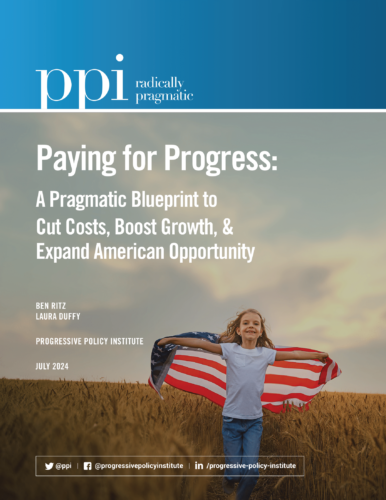Washington, D.C. — Today, Will Marshall, President of the Progressive Policy Institute (PPI), issued the following statement in response to President Joe Biden’s decision to not seek re-election.
“It was a wrenching decision for a proud and deeply accomplished veteran of public service, but President Joe Biden made the right call yesterday by ending his re-election campaign.
“In putting his country’s interests over his personal ambitions, Biden has shown Americans what real patriotism looks like. Contrast his conduct to Donald Trump’s treacherous coup attempt after losing badly to Biden in 2020.
“What forced Biden’s hand was not the fact that he is running behind Trump in national and battleground state polls. He might have remedied that with a vigorous general election campaign.
“But Biden’s June 27 debate performance left nearly three-quarters of Americans worried about his ability to withstand the incredible rigors and stresses of the world’s toughest job for another four years.
“Biden’s departure from the race comes late — in truth, too late. This was a decision that should have been made in January.
“Nonetheless, it removes a daunting obstacle to Democrats’ prospects and shifts public attention to the 78-year-old Trump’s mental state. He’s never had a firm grasp on reality, and his meandering nomination speech in Milwaukee last week showed it’s getting even weaker.
“Contrary to Trump’s over-the-top insults, Joe Biden has been a good president with many significant accomplishments to his credit. The U.S. economy is the strongest in the free world, and Biden deserves enormous credit for rededicating America to the defense of freedom and democracy abroad after Trump’s detour into a selfish and insular jingoism.
“More fundamentally, though, Biden restored decency, dignity, and integrity to a White House defaced by Trump. When Democrats needed an experienced national leader to unite the party and the country against Trump’s political vandalism, the old pro from Delaware rose to the occasion.
“That’s something that can never be taken away from Joe Biden, regardless of what happens in November.”
The Progressive Policy Institute (PPI) is a catalyst for policy innovation and political reform based in Washington, D.C. Its mission is to create radically pragmatic ideas for moving America beyond ideological and partisan deadlock. Learn more about PPI by visiting progressivepolicy.org. Find an expert at PPI and follow us on Twitter.
###
Media Contact: Ian O’Keefe — iokeefe@ppionline.org



